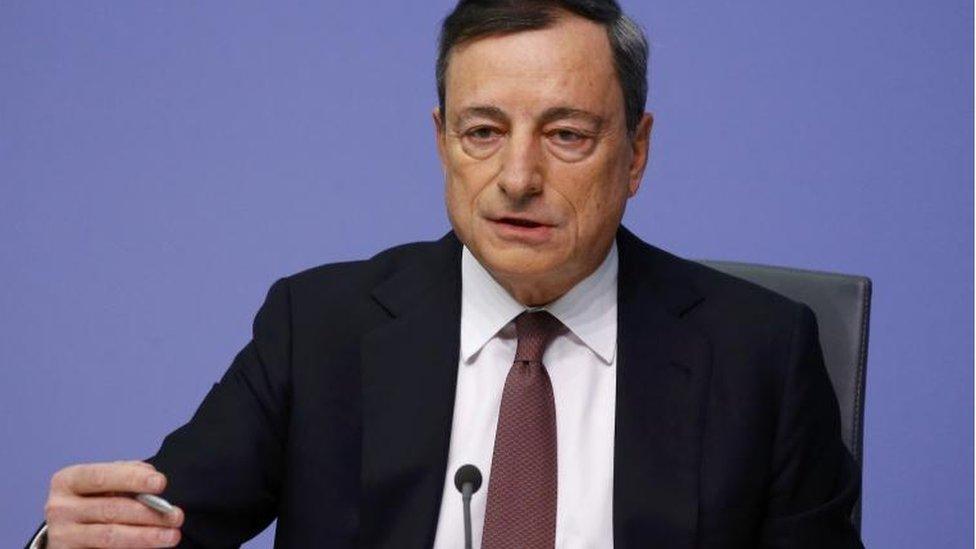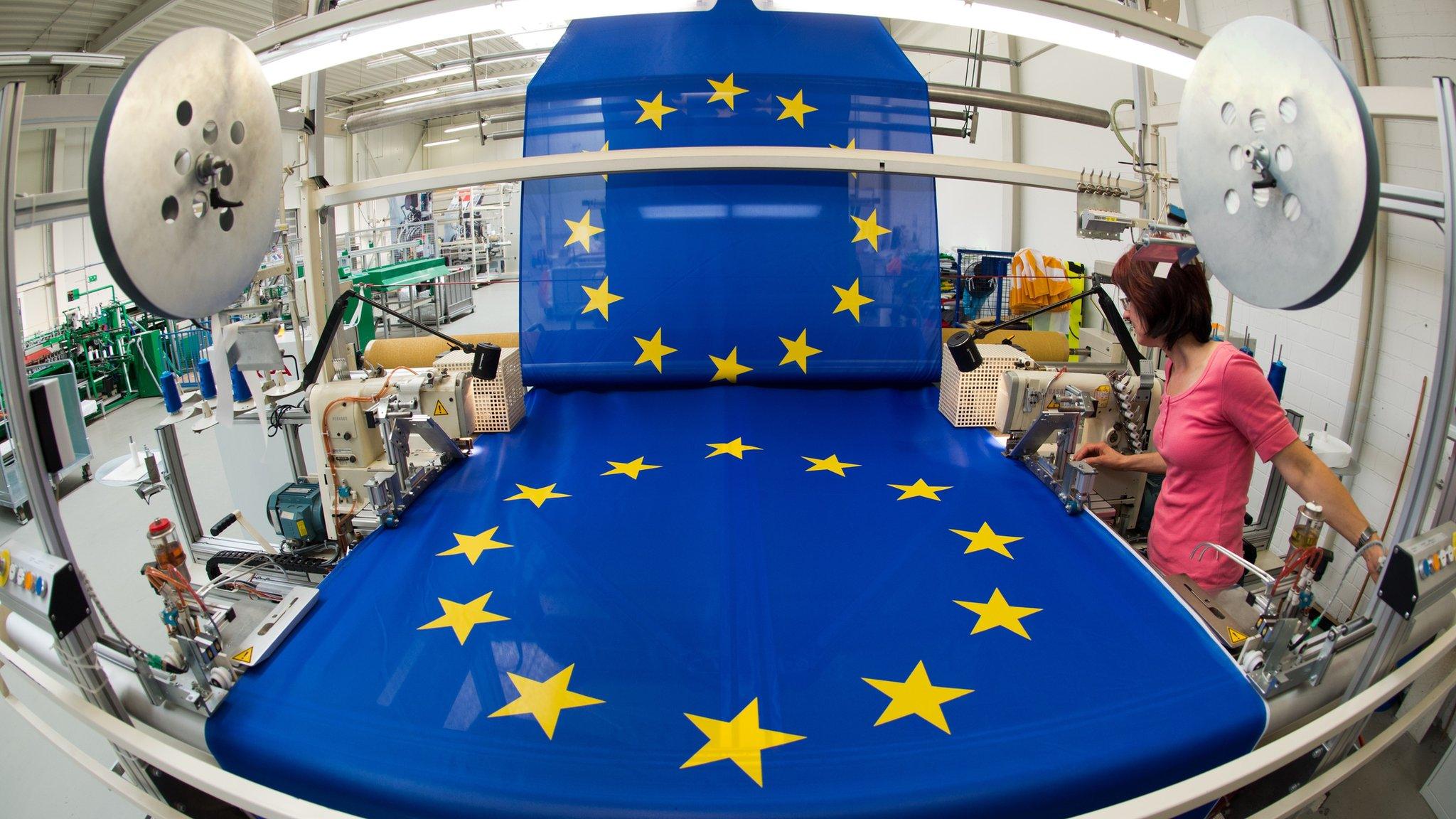Mario Draghi hints at further ECB stimulus moves
- Published

Mr Draghi said there were "no limits" as to how far the ECB was prepared to go to raise inflation
European Central Bank chief Mario Draghi has said the bank will "review and possibly reconsider" monetary policy at its next meeting in March.
He said eurozone rates would "stay at present or lower levels for an extended period" and there would be "no limits" to action to reflate the eurozone.
His comments followed the ECB's regular meeting, where it kept the bank's benchmark rate unchanged at 0.05%.
The overnight deposit rate was also left unchanged at -0.3%.
At the ECB meeting in December, this rate had been cut from -0.2% in an attempt to push banks to lend instead of parking money at the ECB.
In December, the ECB had also extended its €60bn-a-month stimulus programme by six months to March 2017.
Eurozone inflation is currently running at 0.2%, way below the ECB's target of near 2%.
"We have the power, willingness and determination to act. There are no limits how far we are willing to deploy our policy instruments," Mr Draghi said.
Howard Archer, chief UK and European economist at IHS Global Insight, said "the stimulus trigger looks cocked and ready to pull as soon as the March ECB meeting".
'Risks'
Mr Draghi told a news conference: "As we start the new year, downside risks have increased again amid heightened uncertainty about emerging market economies' growth prospects, volatility in financial and commodity markets and geopolitical risks."
He said that could make it necessary to review - and possibly reconsider - monetary policy at the next meeting in early March.

Analysis: Andrew Walker, economics correspondent, in Frankfurt
Mario Draghi most definitely doesn't do panic. In fact, his demeanour in the news conference after the ECB's governing council meeting didn't even suggest mild anxiety. Still, his words made it plain that he and his policy-making colleagues have been watching the new year's financial market gyrations very warily.
It's not the ECB's job to stabilise stock markets. The Bank's job is to keep inflation in check, but it is currently too low: 0.2% compared with the ECB's target of below, but close to, 2%.
The financial market turbulence, especially the fall in oil prices is one reason why, as Mr Draghi said, "inflation dynamics continue to be weaker than expected". He told us the ECB will review policy at its next meeting in March. There is a strong chance of more action, probably extra quantitative easing, to stimulate inflation a bit more (yes really).

That meeting will have a new set of ECB macroeconomic projections to work with.
He said that the recent falls in the oil price meant that inflation was likely to be "significantly lower" compared with the outlook in early December.
Eurozone inflation was below zero - that is, prices were falling - as recently as September, mainly due to falls in international energy prices, particularly crude oil.
In December, Mr Draghi said that eurozone inflation was expected to reach 1% in 2016. However, the ECB's forecasts were based on the assumption of oil prices averaging more than $50 a barrel this year, and oil is currently below $30.
Market reaction
Mr Draghi's latest comments were seen as helping to calm stock markets, with shares in Europe rising as his news conference was under way.
His comments also weakened the euro, which briefly fell below $1.08 against the dollar before regaining ground.
"ECB president Draghi once again saw the equity markets confirm his 'super' status as they jumped almost as soon as he started his speech," said Alastair McCaig, market analyst at IG.
"The emphasis shifted from 'whatever it takes' to 'no limits' where action is concerned, with the small caveat that nothing will happen until they have had their March meeting."
- Published5 January 2016

- Published1 November 2022
